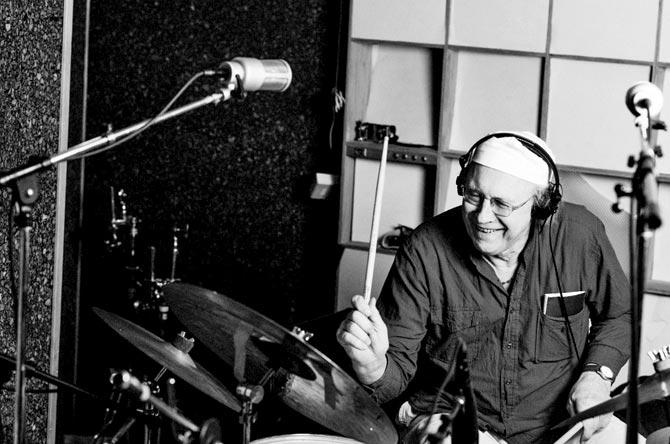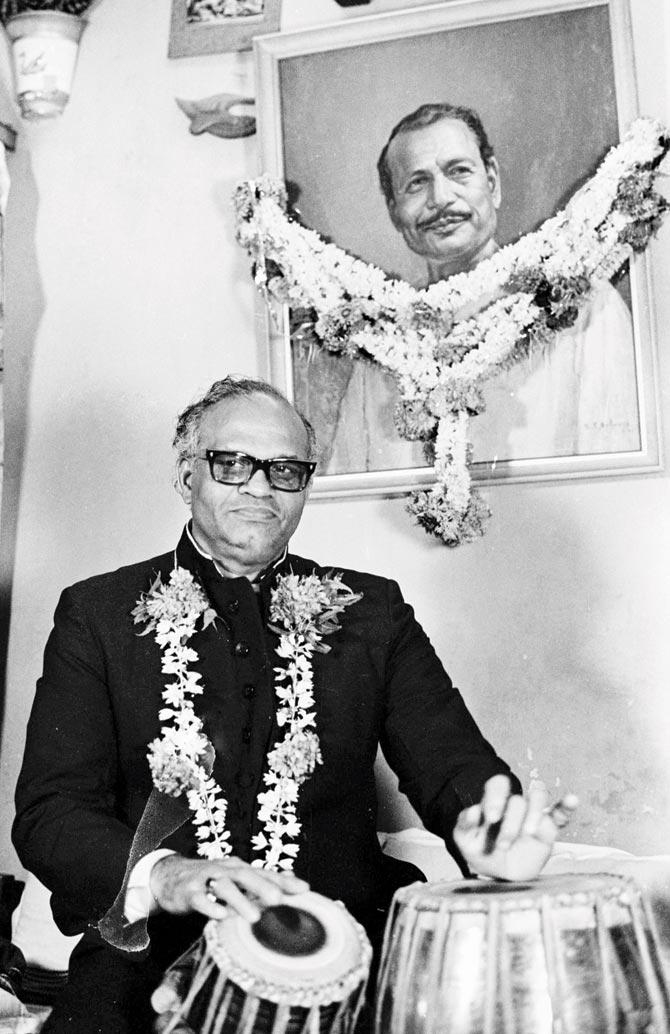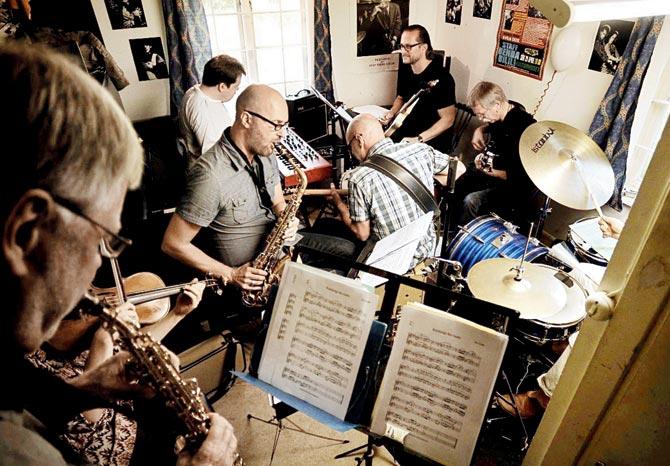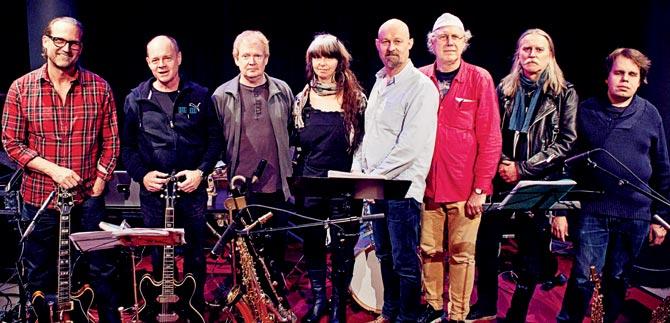In Mumbai to perform with his band Beches Brew, Swedish Jazz musician Bengt Berger shares his love for the tabla and mridangam, and playing funeral music in the city back in 1984

Swedish Jazz drummer Bengt Berger
![]() Exactly 50 years ago, while riding the subway in Stockholm, 20-something Swedish Jazz musician, producer and drummer Bengt Berger stumbled upon an LP record of sitarist Ravi Shankar and tabla maestro Chatur Lal, that became his rite of passage into Indian classical music. "The virtuosity and power of expression in improvisation, the beautiful melodies and exciting rhythmic fireworks knocked me out.
Exactly 50 years ago, while riding the subway in Stockholm, 20-something Swedish Jazz musician, producer and drummer Bengt Berger stumbled upon an LP record of sitarist Ravi Shankar and tabla maestro Chatur Lal, that became his rite of passage into Indian classical music. "The virtuosity and power of expression in improvisation, the beautiful melodies and exciting rhythmic fireworks knocked me out.

Student and Mentor: (Above) Swedish Jazz drummer Bengt Berger was a senior disciple of (below) tabla and pakhawaj maestro Pandit Taranath Rao
ADVERTISEMENT

I immediately decided to come to India, to learn tabla," recalls Berger, who hitchhiked for a month from Turkey via Iran, Afghanistan and Pakistan to India ("This was in 1965; sadly, it’s not possible today"), and landed in Tardeo at the doorstep of tabla and pakhawaj player, Pandit Taranath Rao to learn the instrument.

Beches Brew band members in a jam session
Later, Berger also learnt the mridangam from PS Devarajan, an accompanist of South Indian saint Swamy Haridhos, who also gave him the moniker, Sopandev, that’s stayed with him till date. Since 1970s, Berger has been focused on creating World Music, influenced by Indian, West African ("I spent a couple of years in Ghana learning drumming and the xylophone") and Swedish Jazz, terming it as Country and Eastern. In India, on the occasion of Rao’s birth centenary celebrations, Berger will perform with his eight-piece band Beches Brew at various city spots, even collaborating with Hindustani musicians, Nityanand Haldipur (ban-suri) and Sadanand Naimpalli (tabla). Exc-erpts from an interview:

Beches Brew members (from left) Max Schultz, Goran Klinghagen, Staffan Svensson, Lise-Lotte Norelius, Sir Thomas Jäderlund, Bengt Berger, Stefan Bellnäs and Mats Öberg
Q. What commonalities do you find between Jazz and Indian classical music?
A. Jazz grows out of meeting between cultures. So, naturally, some people who get fascinated with Indian classical will start using elements from it. However, different Jazz styles (and there are many) use harmonies in contrast to the Indian modal approach with different scales. Also, in many styles, there are long choruses that you have to adhere to whereas the Indian (music) has taals. However, they can be complicated, more than the average Jazz rhythms.
Q. While learning music in India in the 60s, did you collaborate with any Indian musicians?
A. At the time, I wanted to learn as much pure Indian classical music as possible. However, this does not mean that I am one of the more experienced tablawalas. Living in Sweden is detrimental to your tabla career, so, for many years, my focus is on the Western drums. I began mixing genres after my return to Sweden, especially after collaborating with the wonderful sarodist K Sridhar. I cannot understand why he is not more widely appreciated; to me, he ranks on par with Amjad Ali Khan.
Q. Tell us more about your association with Bitter Funeral Beer Band that played at the Jazz Yatra in Mumbai in 1984.
A. The Bitter Funeral Beer Band, named after a funeral ceremony in Northern Ghana, was a 13-piece group with music influenced by funeral music that I had studied in Ghana. It was an early example of World Music and very well appreciated. It was different because it had a social meaning plus lots of drums and exciting improvisation from quite a big band.
On: January 10, 5.30 pm
At: Anandashram Hall, Talmakiwadi, Tardeo.
Entry: Free
On: January 11, 7 pm
At: True School of Music, 107, Sun Mill Compound, Lower Parel.
Call: 66243200
On: January 12, 7 pm
At: Tata Institute of Social Sciences, Deonar.
Call: 25525000
 Subscribe today by clicking the link and stay updated with the latest news!" Click here!
Subscribe today by clicking the link and stay updated with the latest news!" Click here!







